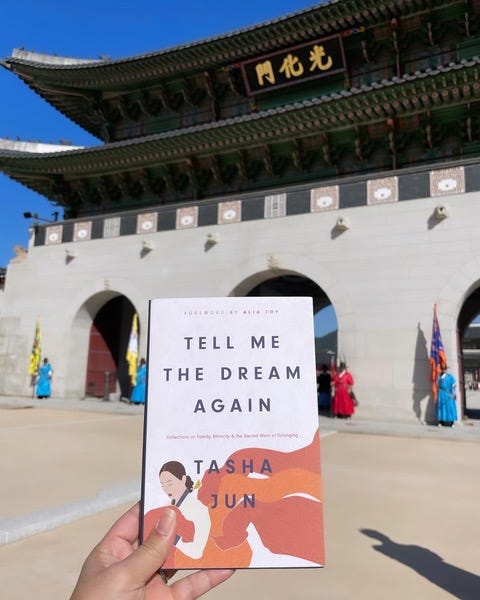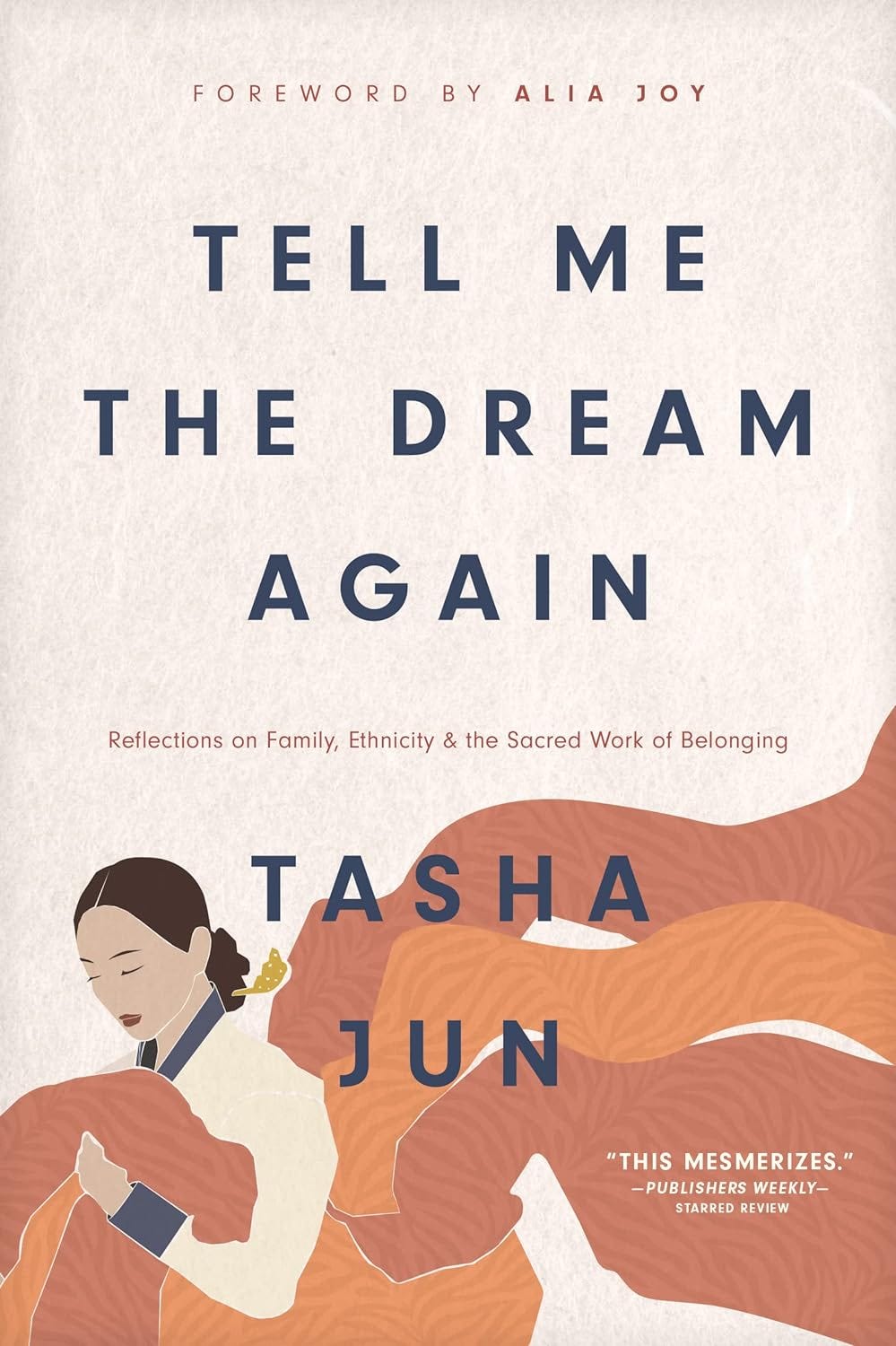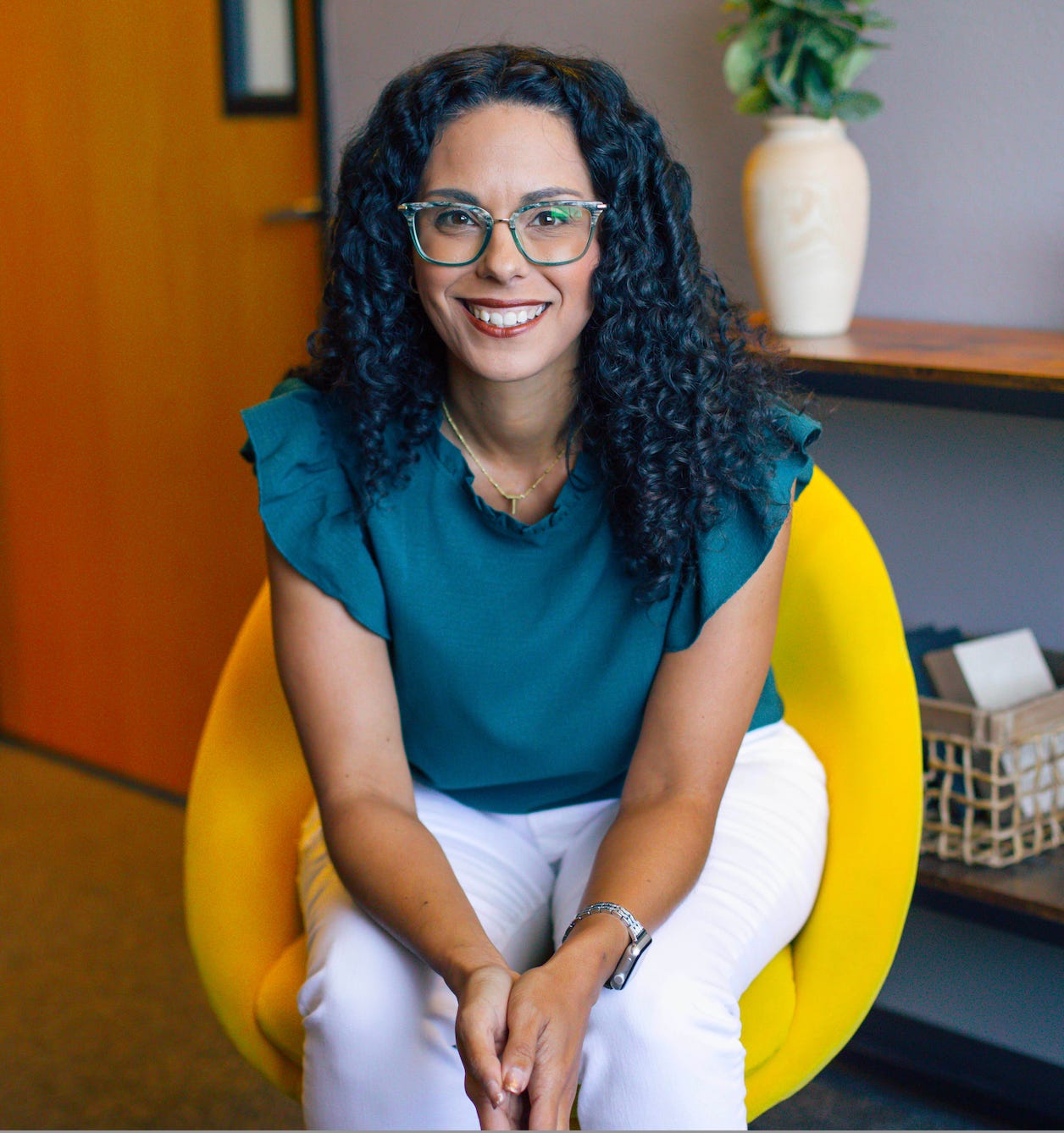Q&A with Tasha Jun
Enjoy an insightful Q&A with Korean American author Tasha Jun, delving into her experiences and perspective as told through her memoir as we honor AANHPI month.
May is AANHPI (Asian American Native Hawaiian Pacific Islander) Heritage Month. Why is that important? Because too often the voices, stories, experiences, and perspectives of our AANHPI brothers and sisters have been silenced. Their culture disregarded. Their history, minimized to a footnote.
But I believe ALL of our stories matter. We have so much to learn from one another when we take the time to sit down and listen to someone’s story. Sometimes we learn to see things from a completely new point of view. Other times, we experience a depth of empathy and compassion. While still other times, we discover we aren’t so different after all.
With that in mind, I want to introduce you to my dear friend Tasha. Tasha is a mom, wife, self-proclaimed melancholy dreamer, poet, writer, and author. She is also a Korean-American. Last year, Tasha’s memoir, Tell Me The Dream Again, was released in which she shares her stories of her family, struggling with her Mixed ethnicity, and searching for belonging. I could tell you all about her and her amazing story, but I thought it would be better coming straight from her. So grab your favorite beverage, cozy up, and let me introduce you to my friend…Tasha Jun.
Q: Tasha, can you please share a little about your background?
“I am the daughter of a Korean immigrant mother and a white Californian father. Growing up in a Mixed Race, multicultural family was our normal, and as a child, I loved our ‘home’ as a family, no matter where we lived. We had a mix and a blend of everything, from language, table spreads, stories, and cultural norms. In many ways, my upbringing was a cohesion of difference and trained me to believe different people and cultures were meant to be together.”
Q: What was it like for you growing up as a multiethnic, multicultural kid? Was it something you embraced or rejected? Did you gravitate towards one side or culture, or were you a chameleon, being who you needed to be depending on the space?
“It wasn’t until I began going out into the world outside our home or family unit that I felt like my ‘mix’ was questioned, challenged, and misunderstood. After experiencing the ways others questioned my identity or implied that one part of me was better than the other, or that I would need to ‘pick a side, that I began to slowly reject my Koreanness in certain settings that seemed to prize whiteness as the norm and ideal. I didn’t know what White Supremacy was then, and I couldn’t have articulated any of this then - but I definitely experienced its powerful effect in all the places I have lived.”
Q: Tell us about your book. What prompted you to share your story in such a public way?
“Tell Me The Dream Again (TMTDA) began over two decades ago in a college memoir class. Our final assignment in that class was to write a mini-memoir of sorts. When I sat down to write, all that poured out of me were stories of my Korean mom and their connection to me as her daughter. All the things I’d kept and held in the years prior, came flowing out of me. After that class, I put the mini-memoir away - wondering if it could become more of a book, but hadn’t lived enough to write the rest. Then, when I started writing publically again, I found these stories rising back to the surface of my creative work. Even when writing articles online about faith or everyday life, stories of my mom and me would come to mind and influence my writing. Bit by bit, I began to see a book come together from parts of that decades-old mini-memoir, stories that were stirring within me, and the experiences I’d lived between then and now.
I was ready to show up as my whole self, and to do that meant giving voice to the parts of me that I’d hidden. As a mom of three, it only became more and more urgent to me to write and speak these stories out loud, to do my part to resist the narratives of erasure and invisibility that Asian American stories and history have had, and to embrace the reflection of the Imago Dei1 that God had given me.”
Q: Throughout TMTDA and your social media, you’ve shared that you have often felt rejected by Asian communities, both here in the US and when you’ve traveled abroad. Can you share more about those experiences and how they made you feel?
“I mostly experienced this as a child. It was a shock to the system then because before traveling to Korea, I thought going there would be like going home. To travel there and learn that some Koreans despised Mixed-race Koreans (after being spit on, called names, or poked with a toothpick by another child) was painful both physically and emotionally. Those experiences gave me doubt, grief, and insecurity over what I could call myself and what I had claim to.”
Q: Where are you today with your multiethnic, multicultural identity?
“I am in a place of embrace, and while embrace is a way of continually learning and living, surrendering and healing, I love who I am and who I am becoming. My multiethnic and multicultural identity is an integral part of who I am and how I understand my belovedness as a child of God. I feel free to explore, learn, not know, reclaim, and rebuild and yet still say I am Korean American, Mixed, biracial, Asian American, etc without the need to defend, explain, or prove anything.”
“I feel free to explore, learn, not know, reclaim, and rebuild and yet still say I am Korean American, Mixed, biracial, Asian American, etc without the need to defend, explain, or prove anything.”
~Tasha Jun
Q: How does being multiethnic and multicultural impact your life today? What (if any) role does it play for you as a wife & mother?
“I am sure it impacts everything, but I see it show up most tangibly in the stories I tell and the table spreads make at home. I also know that one of my vocational callings in life is to ‘create spaces of belonging,’ and I know that a lot of this flows from my being a multiethnic and multicultural person.”
Q: What do you wish little Tasha would have known or been told?
“It’s okay - not only okay, but a superpower - to be born as, grow up in, and live constantly in a body, family, and story that is both/and.
And, you won’t always feel so alone. The light will always find you and you will learn how to shine that same light in others’ darkness.”
Q: What advice would you give someone today who’s struggling to embrace their multiethnic, multicultural heritage?
“It’s okay to struggle. This work isn’t usually a quick or graceful dance. It’s clumsy, and can be confusing…and YET it’s more than okay to move towards embrace. I believe we are all meant to move towards it. Anything you do (big or small) to move towards embracing your whole self is not selfish…it’s sacred, vital work that impacts all of you and all of us for the better. You have absolutely nothing to prove.”
“Anything you do (big or small) to move towards embracing your whole self is not selfish…it’s sacred, vital work that impacts all of you and all of us for the better. You have absolutely nothing to prove.”
~Tasha Jun
I’m so grateful for Tasha’s willingness to share her story and wisdom. She is truly a gem!
Want to learn more? Grab your copy of Tell Me The Dream Again.
And follow Tasha:
Shalomsick Notes (Substack)- Every day during May she featured a different AANHPI voice. Check them out to discover more amazing stories and perspectives.
Instagram








Thank you, dear friend!